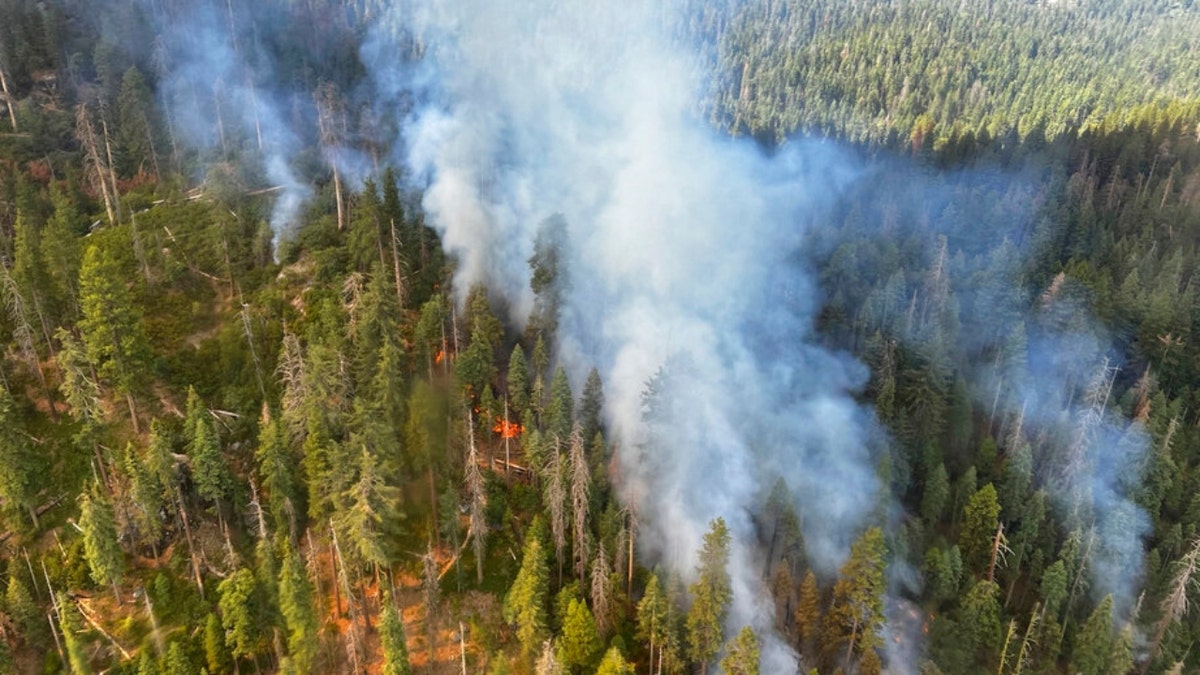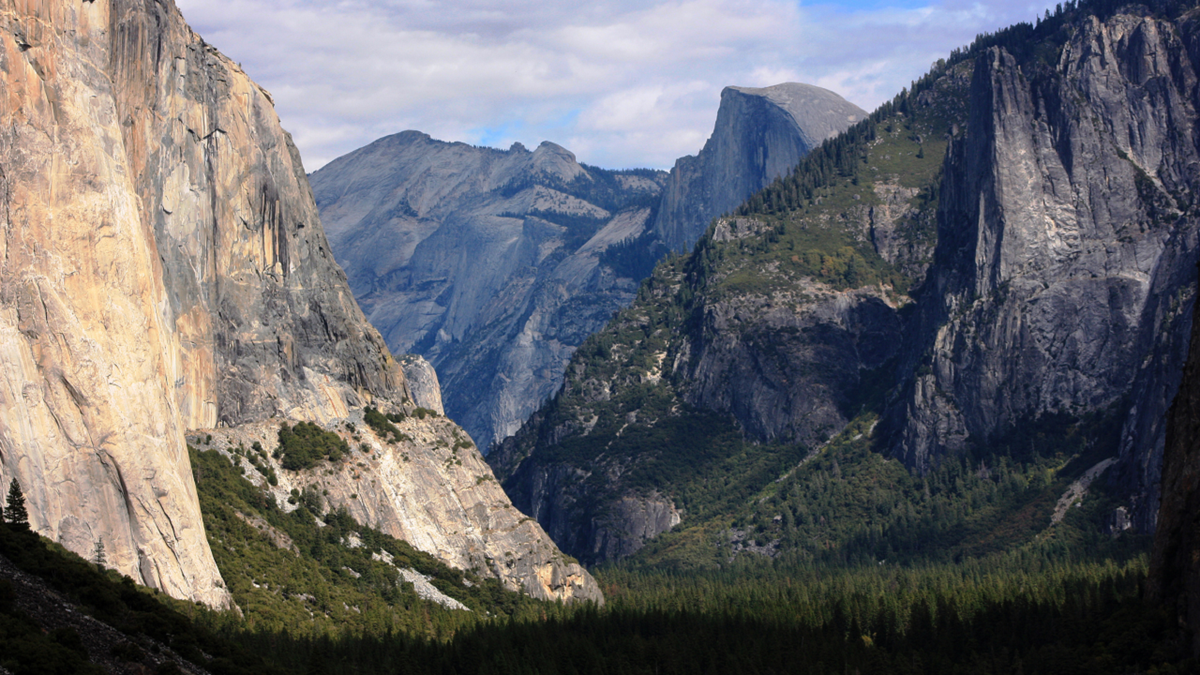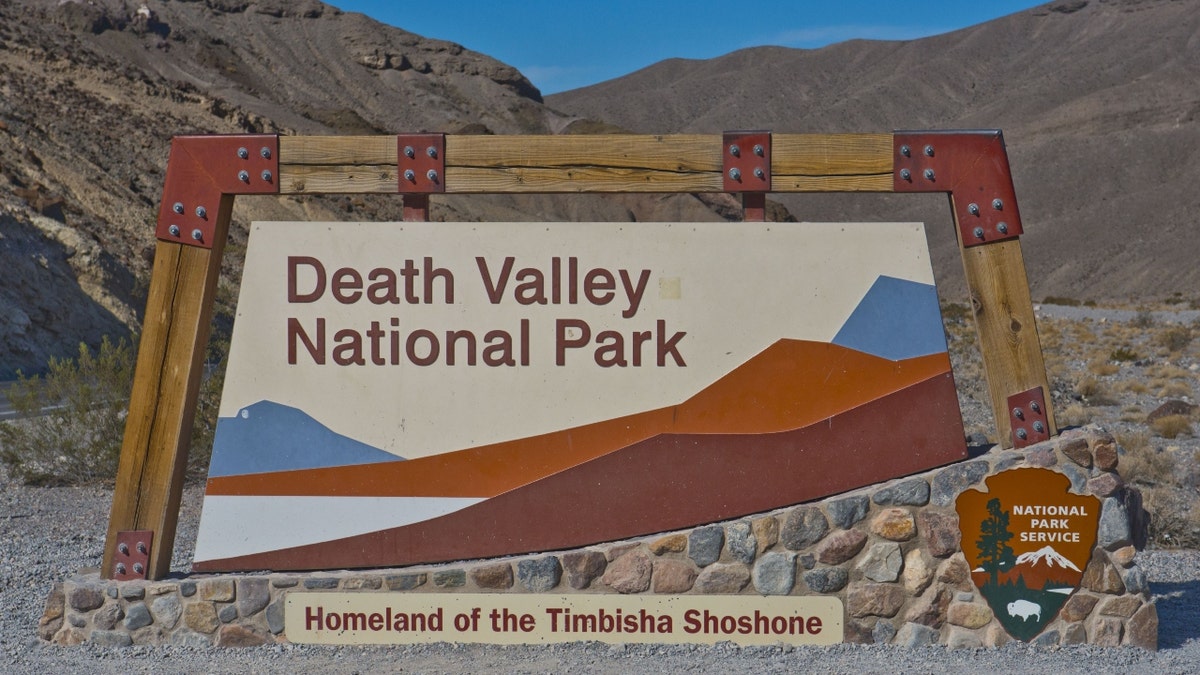California wildfire burns in Mariposa, near Yosemite National Park
A wildfire in Mariposa, California, near Yosemite National Park has destroyed several homes.
Four California parks have been dubbed the most polluted parks in the nation in a new environmental study.
A report from the National Parks Conservation Association (NPCA) found that Sequoia and Kings Canyon National Parks ranked as the most polluted parks based on unhealthy levels of haze pollution along with the frequent threats of droughts and wildfires.
"With stunning mountains, caverns, forests, foothills and 2,000 plus-year-old sequoias towering overhead, the Land of Giants might seem invincible. In truth, these majestic parks, and the plants and wildlife which rely on them, face the unique and devastating consequences from human-caused air pollution and climate change," the NPCA website described.

Various California parks suffered from a series of wildfires over the past few years. (National Park Service via AP)
California's Joshua Tree National Park, Mojave National Preserve, and Yosemite National Park all followed Sequoia and Kings Canyon as the top four. Death Valley National Park, also in California, came in sixth.
"It’s not a surprise that air pollution is a problem in California. I think people know this," Ulla Reeves, interim director for NPCA’s clean air program, told the Los Angeles Times. "But we see that the sequoias and the Joshua trees and all of these places are really having an outsized experience of air pollution and climate threats."
The report concluded that climate change "is causing irreparable harm to our national parks" and offered policy solutions to combat it.

Yosemite National Park was among the California parks listed on the NPCA's Polluted Parks report. (AP/Tammy Webber)
FIRE, OTHER RAVAGES JEOPARDIZE CALIFORNIA’S PRIZED FORESTS
"NPCA collaborates with communities and partner organizations to reduce air and climate pollution through the implementation of strong policies and regulations such as the Clean Air Act’s Regional Haze Rule, National Ambient Air Quality Standards and New Source Performance Standards for power plants as well as vehicle emission standards. We work to hold federal agencies, states and industrial polluters accountable for the air pollution driving climate change and harming visibility and nature in national parks and the health and wellbeing of people and communities," the report read.
It continued, "Our work is aimed at making sure that national parks, park visitors and nearby residents enjoy optimal air quality conditions, clear views and healthy ecosystems."
NPCA also found that 97% of U.S. national parks "suffer from significant or unsatisfactory levels of harm from air pollution" with at least 57% of them suffering from "at least one high risk climate threat." While California cannot govern national parks, Rachel Norton, executive director of California State Parks Foundation, noted that the state can affect its parks' budgets and allocate funds to address climate change.

California's Death Valley National Park was listed as the sixth most polluted park in the country. ((Photo by: Education Images/Universal Images Group via Getty Images))
CLICK HERE TO GET THE FOX NEWS APP
"And if [the state] chooses to not invest, and not see these places as essential and critical to the success of our climate goals, then we might fail," Norton told the L.A. Times. "And that’s kind of unthinkable."










































